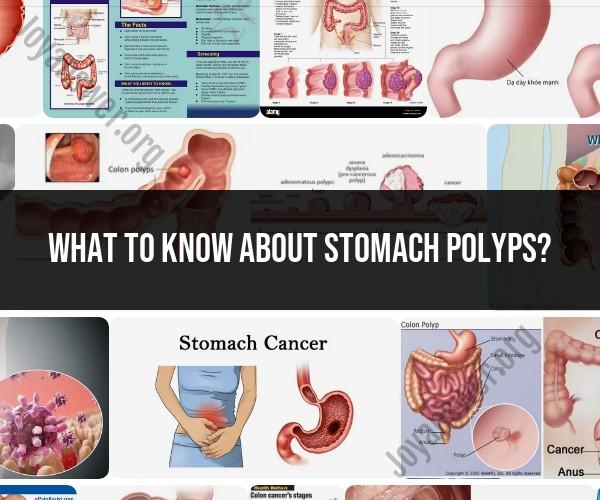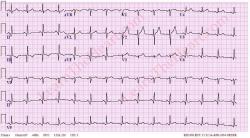What to know about stomach polyps?
Stomach polyps are small, abnormal growths that can develop in the lining of the stomach. While most stomach polyps are noncancerous (benign), some may have the potential to become cancerous over time. Here's what you need to know about stomach polyps:
1. Types of Stomach Polyps:
- There are several types of stomach polyps, including:
- Hyperplastic polyps: Usually noncancerous and rarely cause symptoms.
- Adenomas: Can be precancerous and have the potential to develop into stomach cancer.
- Fundic gland polyps: Typically benign and often associated with long-term use of certain medications, like proton pump inhibitors (PPIs).
- Inflammatory fibroid polyps: Rare and usually benign.
- Gastric polyps associated with familial adenomatous polyposis (FAP): Linked to an inherited condition and may carry a higher cancer risk.
2. Causes and Risk Factors:
- The exact causes of stomach polyps are not always clear, but some factors may increase the risk of developing them. These include chronic inflammation of the stomach lining (gastritis), Helicobacter pylori infection, certain genetic conditions, and long-term use of certain medications.
3. Symptoms:
- Stomach polyps often do not cause noticeable symptoms. However, if symptoms do occur, they may include:
- Indigestion or abdominal discomfort.
- Nausea and vomiting.
- Blood in the stool or black, tarry stools (which can indicate bleeding from the polyps).
- Anemia (low red blood cell count) due to chronic bleeding.
4. Diagnosis:
- Stomach polyps are typically discovered during upper gastrointestinal endoscopy (gastroscopy), a procedure in which a thin, flexible tube with a camera is inserted through the mouth and into the stomach to visualize the polyps. Biopsies may be taken to determine if the polyps are cancerous or precancerous.
5. Treatment:
- The treatment of stomach polyps depends on their type and whether they are causing symptoms. Treatment options may include:
- Removal of the polyps during endoscopy (polypectomy).
- Regular monitoring to assess changes in polyp size or appearance.
- Medications to treat underlying conditions like H. pylori infection or gastritis.
6. Cancer Risk:
- While most stomach polyps are benign, some types, such as adenomas, can have the potential to develop into stomach cancer if left untreated. Regular monitoring and appropriate management are crucial to reduce this risk.
7. Prevention:
- Preventive measures for stomach polyps include addressing risk factors like H. pylori infection, avoiding long-term use of certain medications when possible, and maintaining a healthy diet and lifestyle.
It's important to consult with a healthcare provider if you experience any symptoms suggestive of stomach polyps or if you have risk factors that warrant evaluation. Early detection and appropriate management are key to preventing potential complications, including the development of stomach cancer.











